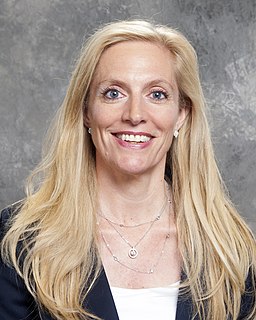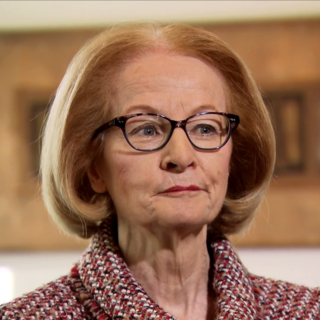A Quote by Caroline Lucas
Banks and investors have poured money into dirty energy and high-carbon for decades. While no single policy is a magic bullet for the climate crisis, there is also no way of solving it that doesn't involve a fundamental reimagining of the role of our financial system.
Related Quotes
Under the rule of the "free market" ideology, we have gone through two decades of an energy crisis without an effective energy policy. Because of an easy and thoughtless reliance on imported oil, we have no adequate policy for the conservation of gasoline and other petroleum products. We have no adequate policy for the development or use of other, less harmful forms of energy. We have no adequate system of public transportation.
The Fed has a lot of power in the economy because it has a big impact on the supply and cost of credit, that is, interest rates. It also plays a key role in supervising banks and historically has seemed to take it easy on the banks when it shouldn't have, such as in the lead up to the financial crisis.
With joint-stock corporations, investors can place bets on the success of many different companies, without having to play a central management role in any one of them. This allows investors to diversify their financial holdings. It also allows them to capture profits on their investments, without having to get involved in the dirty, troublesome business of actually running a company.
The global financial crisis is a great opportunity to showcase and propagate both causal and moral institutional analysis. The crisis shows major flaws in the way the US financial system is regulated and, more importantly, in our political system, which is essentially a bazaar of legalized bribery where financial institutions can buy themselves the governmental regulations they want, along with the regulators who routinely receive lucrative jobs in the industry whose oversight had formerly been their responsibility, the so-called revolving-door practice.
We need a federal government commission to study the way our financial services system is working - I believe it is working badly - and we also need more educated investors. There are good long term low-priced mutual funds - my favorite is a total stock market index fund - and bad short term highly priced mutual funds. If investors would get themselves educated, and invest in the former - taking their money out of the latter - we would see some automatic improvements in the system, and see them fairly quickly.
Remember that the problem is bigger than the car you drive or the types of lightbulbs in city hall. We need a fundamental shift away from dirty fossil fuels that spew carbon pollution. To make that happen, we need to put pressure on our leaders to take the bold actions necessary to move us off dirty sources of energy.
The financial crisis has underscored how insufficient attention to fundamental corporate governance concepts can have devastating effects on an institution and its continued viability. It is clear that many banks did not fully implement these fundamental concepts. The obvious lesson is that banks need to improve their corporate governance practices and supervisors must ensure that sound corporate governance principles are thoroughly and consistently implemented.
People look at the future and see a black hole. They look at climate change and see an ecological crisis. They look at their leaders corrupted by money and see a political crisis. They wonder if they'll ever be able to pay off their student loan or own a house. Given this ecological, political and financial crisis, what they want is a different future. Their fundamental demand is a different regime to provide that future.
































